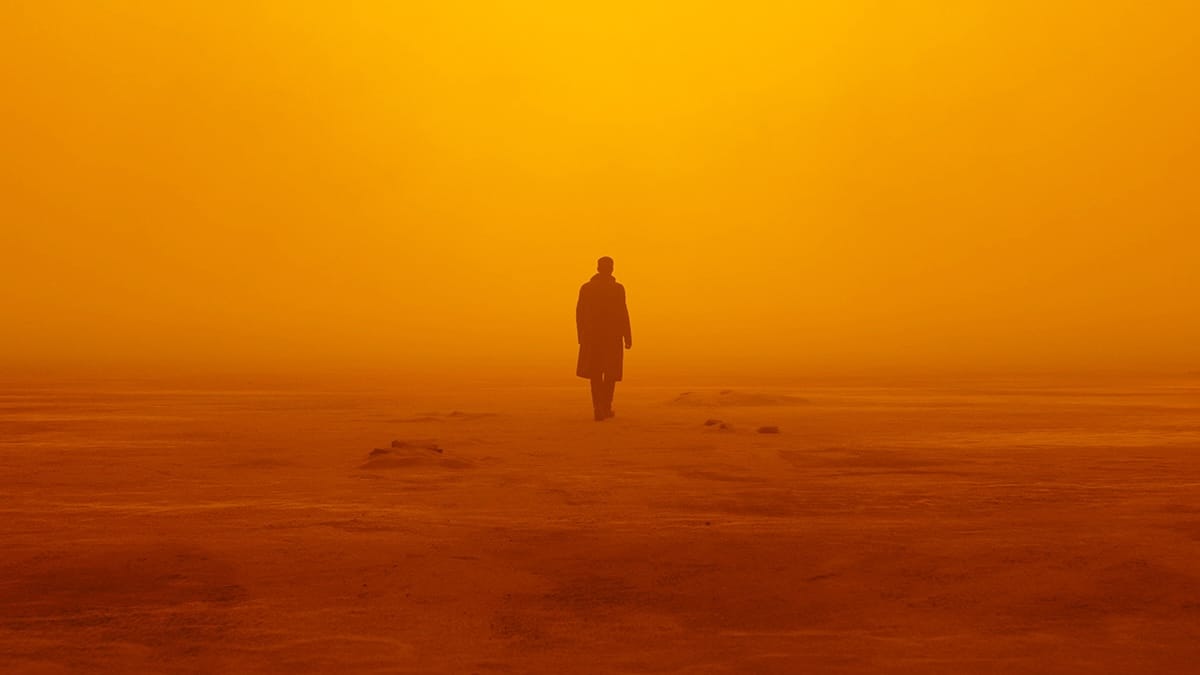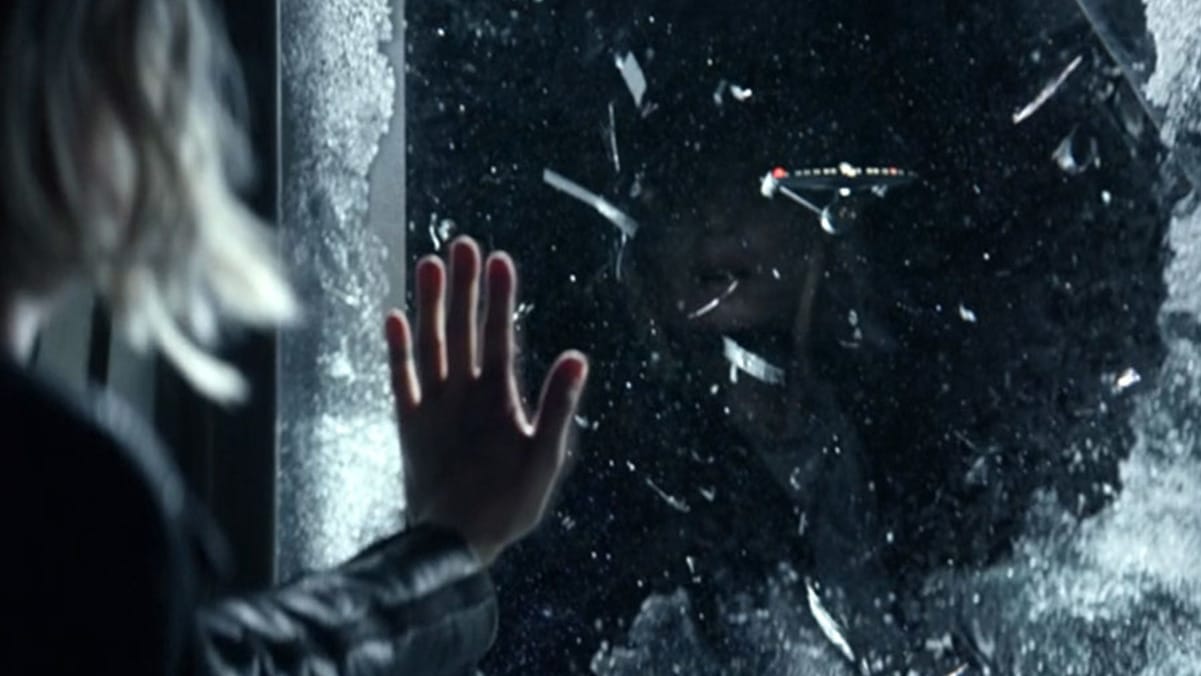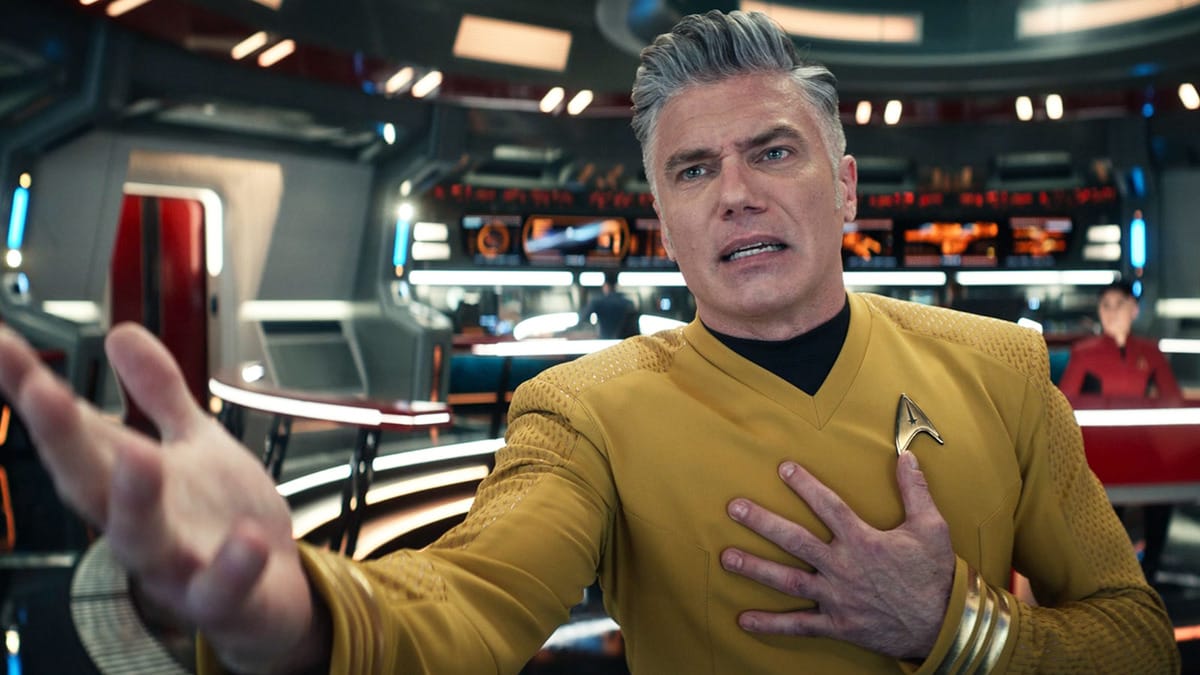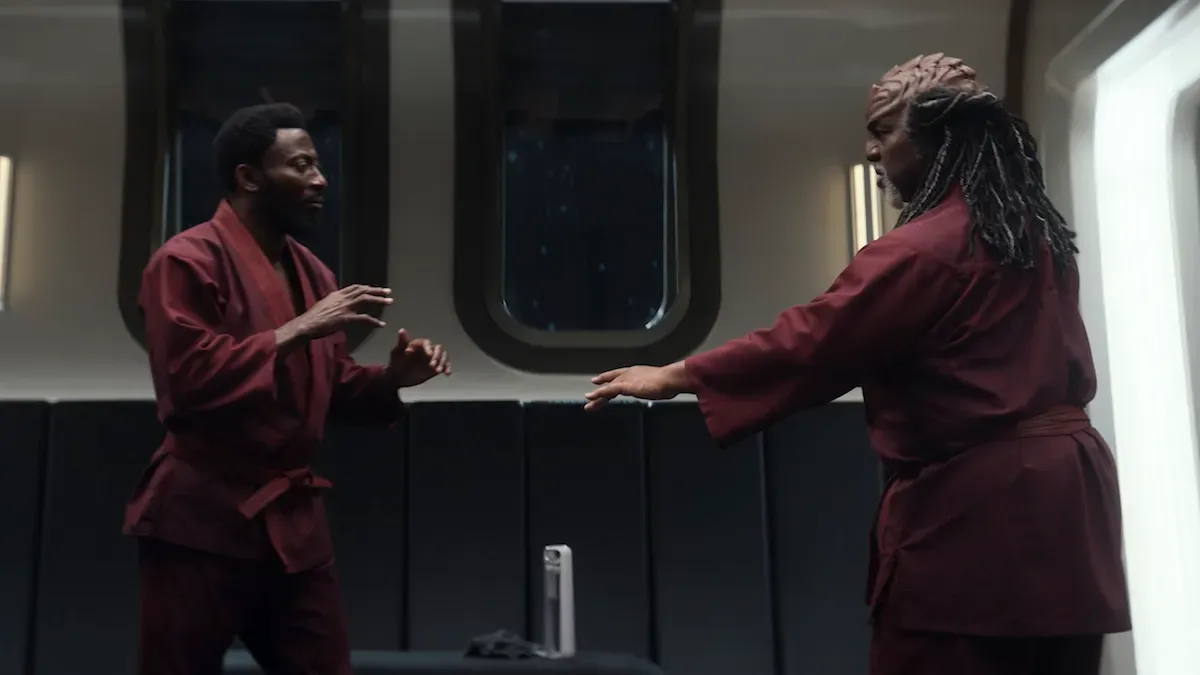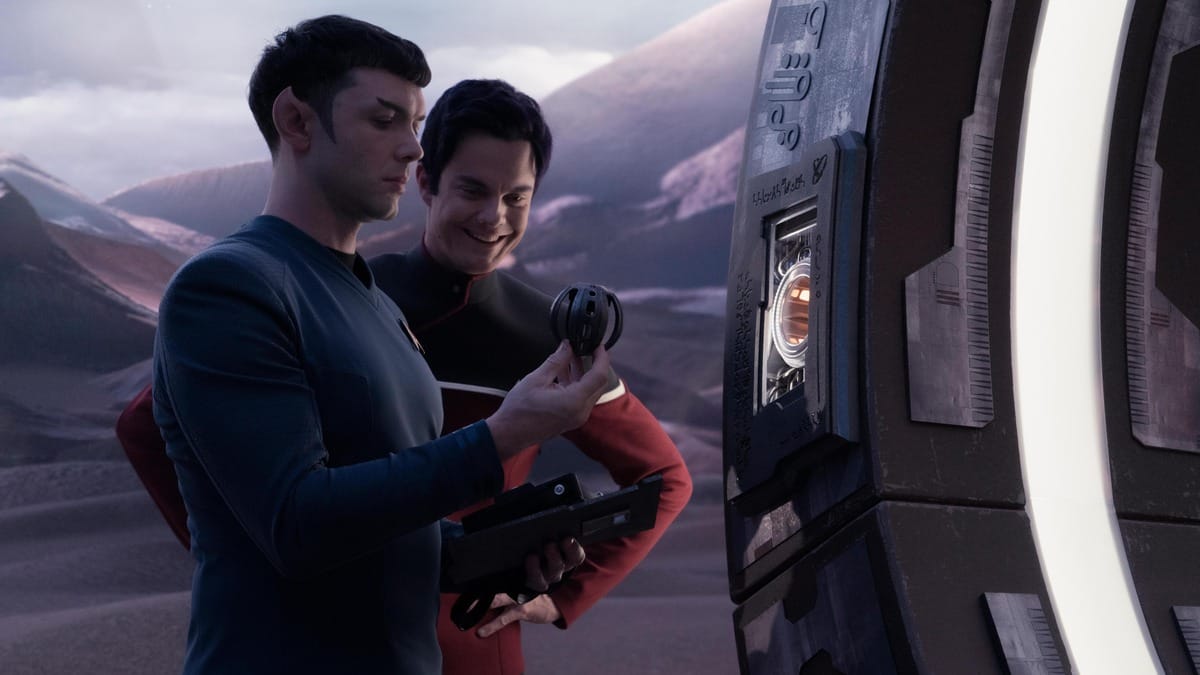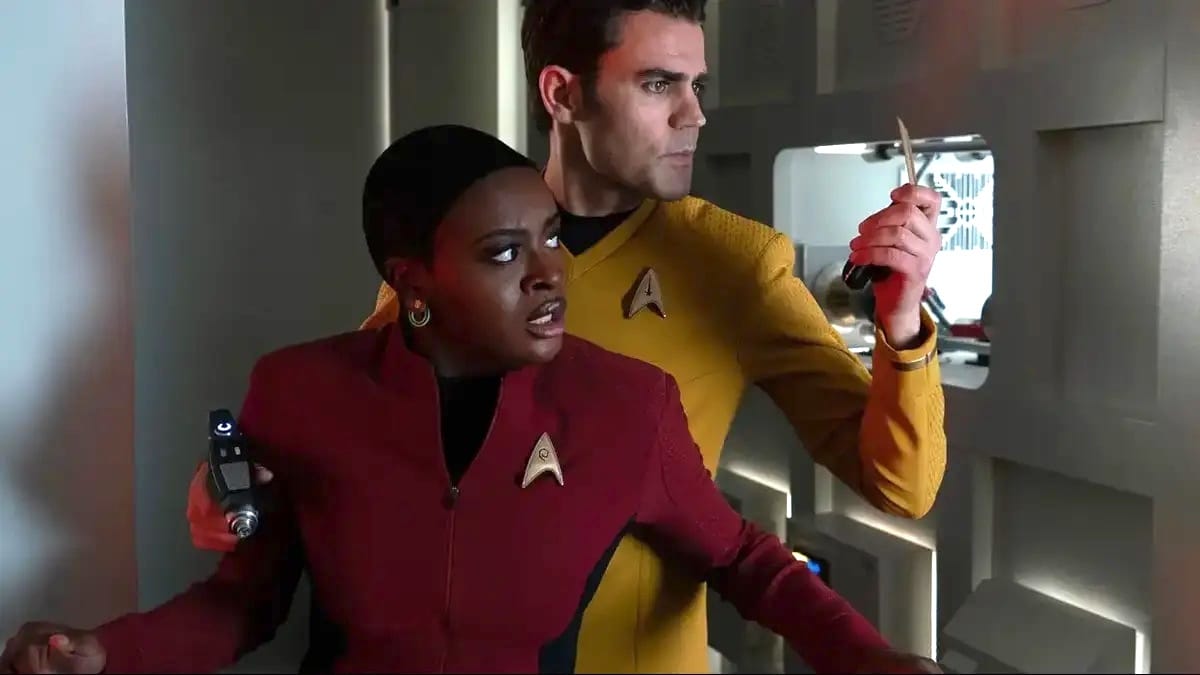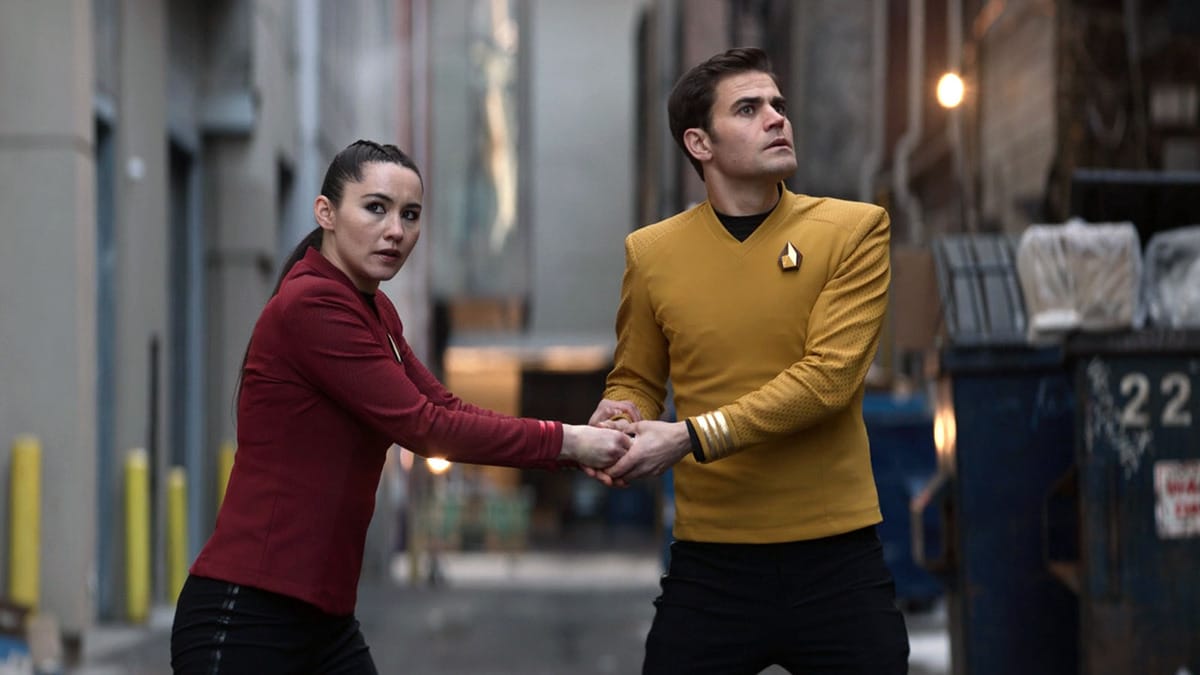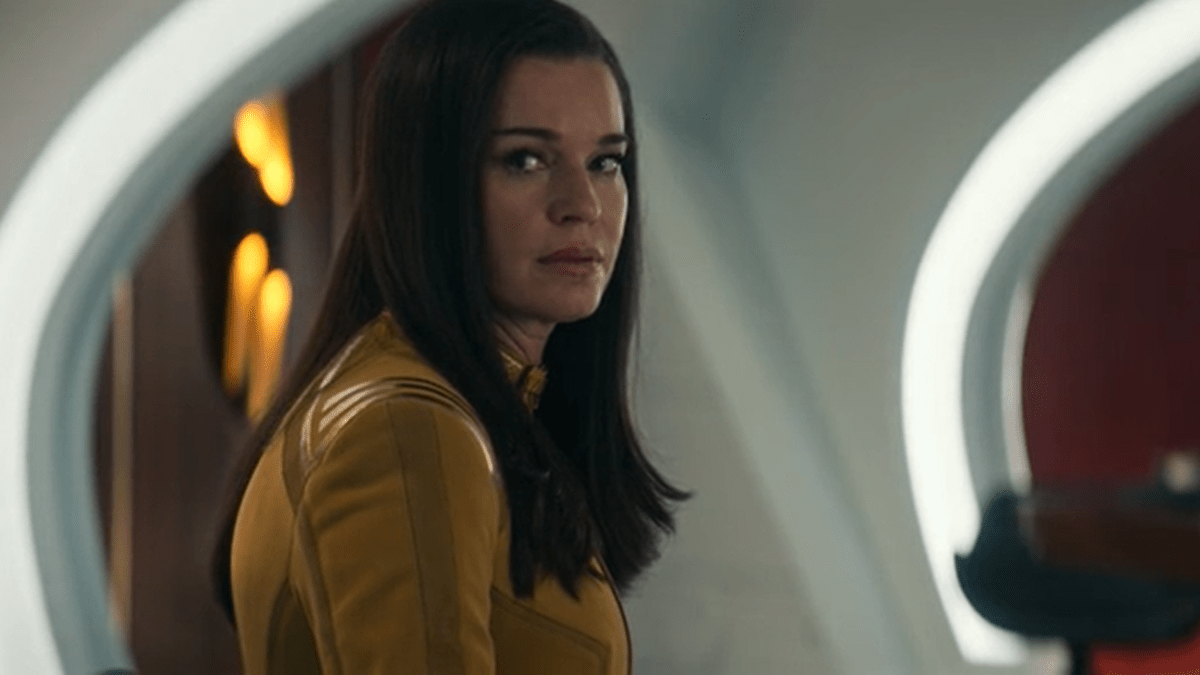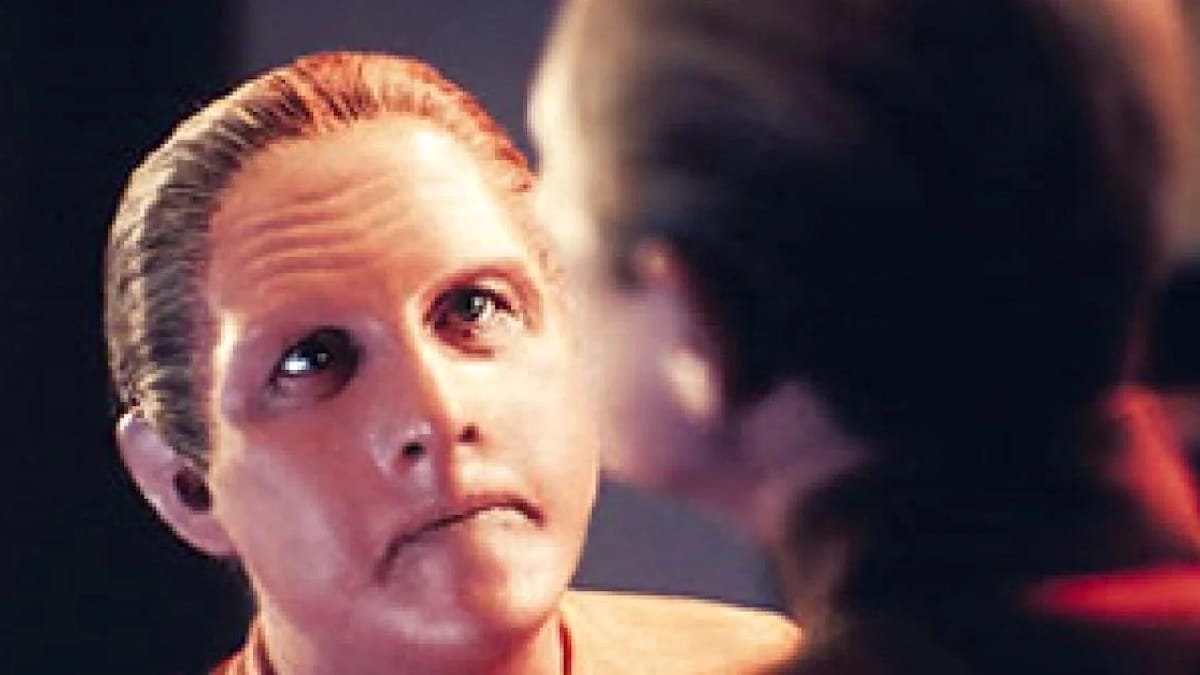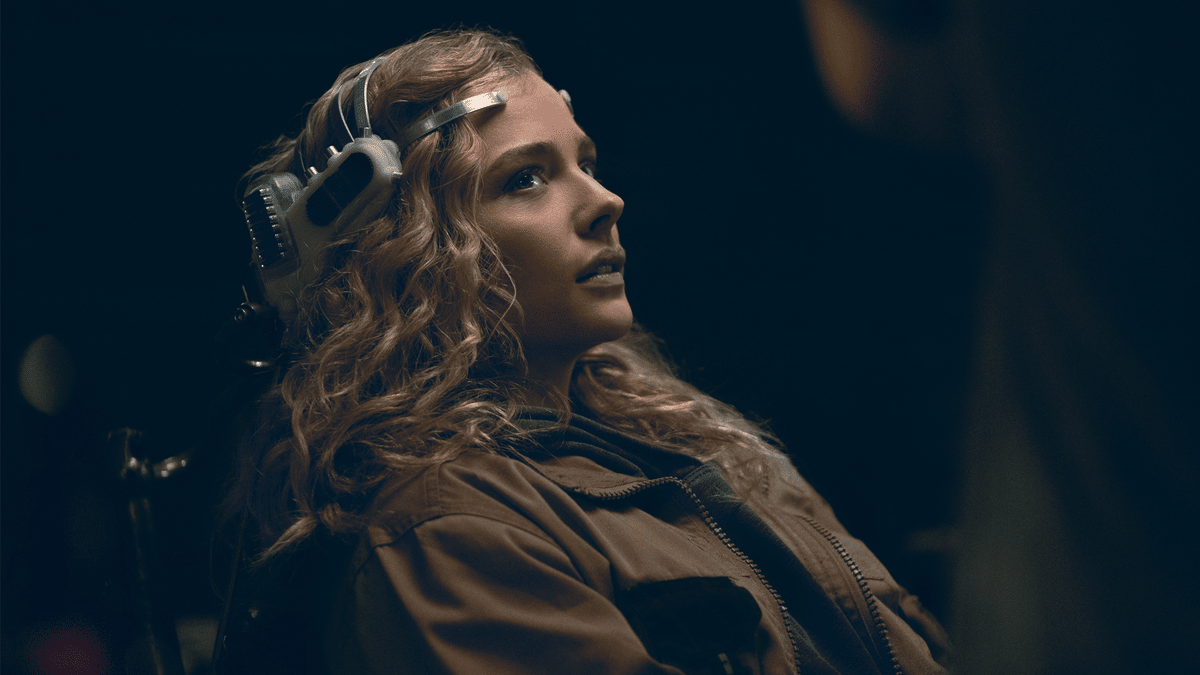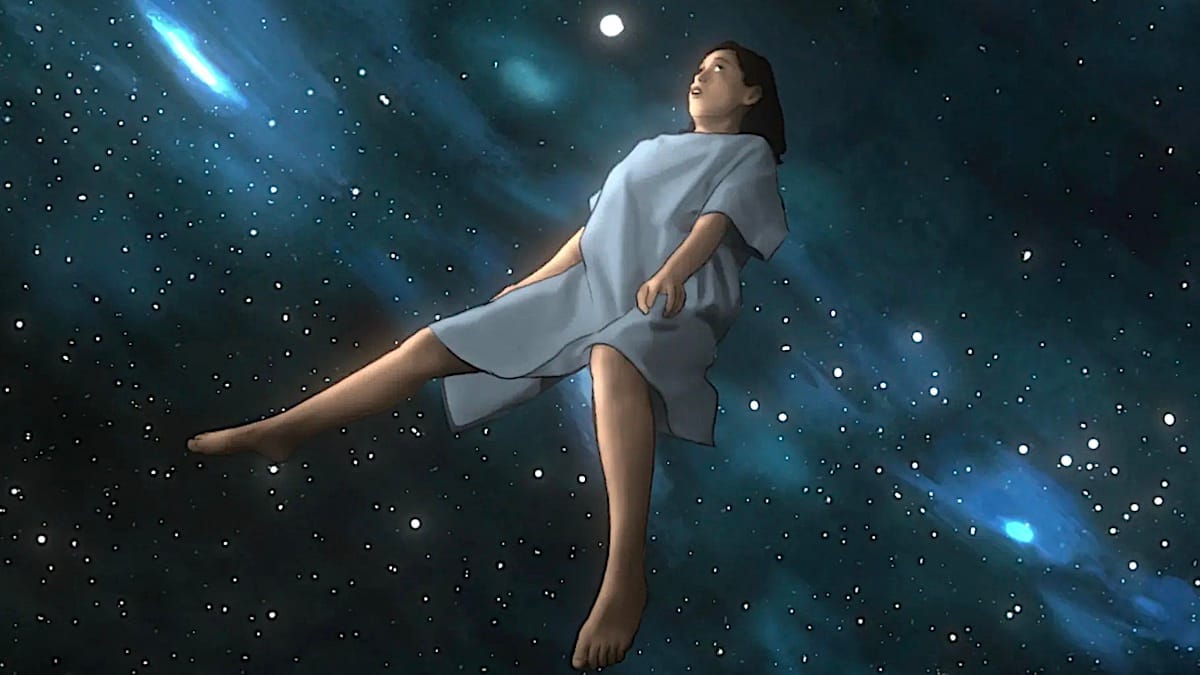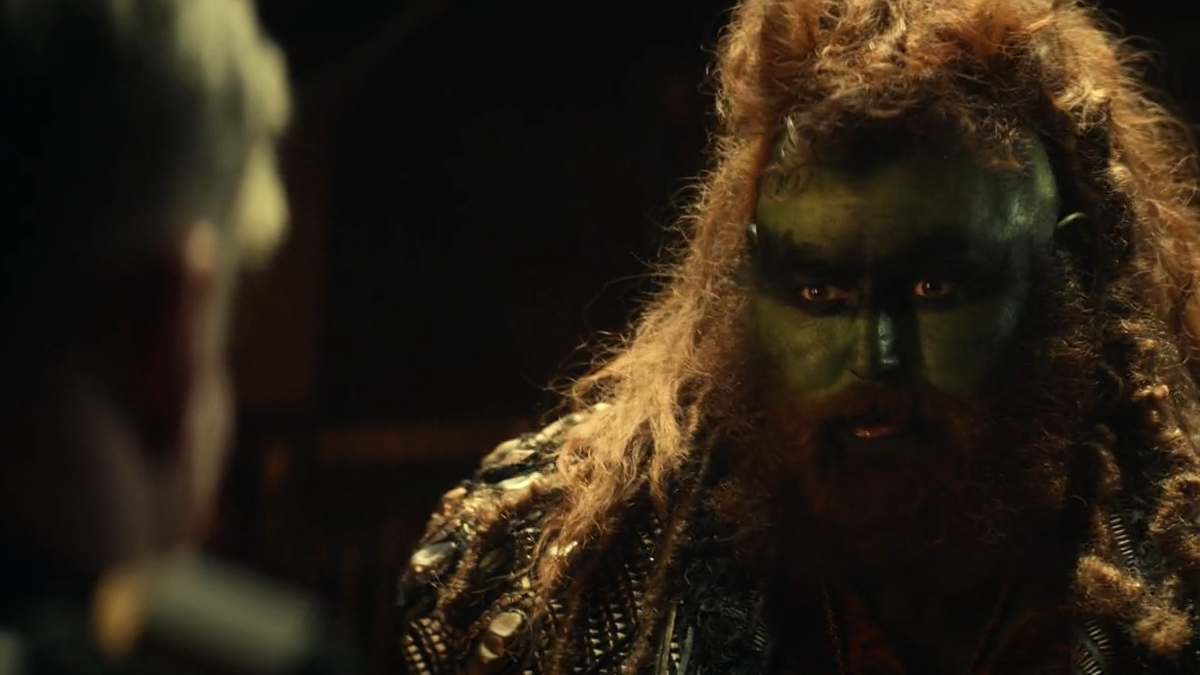Film/TV
How movies get our future wrong—and right
There's a lot we can't know about the future. But films should at least include the things we know for sure.
How do we reckon with ‘Hegemony’ without imposing our own?
Reading Time: 14 minutes I’ll admit, it’s been tough to wrap up this season of Strange New Worlds, knowing that the ongoing writers and actors’ strikes all but guarantee a long delay before Season 3. Season 2 also ends on a cliffhanger, which makes not only the wait but also the write-up a bit more
Singin’ in the ‘Subspace Rhapsody’: Music and the quest for harmony
Reading Time: 11 minutes Singin’ in the Rain (1952) was by no means the first musical, but one reason it remains among the most acclaimed is its express engagement with the role of sound and song in our lives. Maybe you only know the film by its iconic and titular “singing in the rain” scene, or may
Whose justice will emerge from ‘Under the Cloak of War’?
Reading Time: 13 minutes This week’s main episode of Strange New Worlds, which was moved up to accommodate the surprise early launch of a crossover episode on July 22, enters difficult territory. On the surface, “Under the Cloak of War” bears some resemblance to facets of Star Trek VI: The Undiscove
How do we manage our myths around ‘Those Old Scientists’?
Reading Time: 10 minutes I’ll be blunt: I do not like Star Trek: Lower Decks, an animated series set in the timeline for The Next Generation, and a crossover element in the first of this past week’s episodes of Strange New Worlds. When it comes to Trek comedy, the non-canon homage series The Orville
How what’s ‘Lost in Translation’ can be found again in empathy
Reading Time: 12 minutes What defines a “Trek” story varies between Trekkies, but one abiding feature in many series is the role of trust among crew mates. In a 2019 essay for Uncanny Magazine, Nicasio Andres Reed explored what makes this trust extraordinary. Here’s the way the story often goes, in
‘Tomorrow and tomorrow and tomorrow’: How time travel creeps into Trek today
Reading Time: 11 minutes This week’s episode of Strange New Worlds takes us boldly to Canada, but I promise: just because most of the show is set in my birthplace of Toronto, we won’t go off-mission too much to reflect on how it uses the location. I will only say that if you’re buying street meat (v
‘Ad Astra per Aspera’: How we escape from hardship into wonder
Reading Time: 11 minutes Last week, I gave the opening episode of Strange New Worlds (SNW) Season Two a bit of a pass: I called it a “mission statement” more than a typical outing from this version of the Enterprise. The plot and script seemed intent on solidifying character gains from the first sea
Perfect empathy: Deep Space Nine and the most fantastical concept in all of fiction
Reading Time: 5 minutes A series that brought the optimism of Star Trek to the threshold of the 21st century ended with the message that empathy is the solution to all conflict. A generation later, that concept is much harder to accept.
‘The Peripheral’ plays it safe with William Gibson’s future thinking
Reading Time: 6 minutes In some ways, the opening scene of The Terminator (1984) had to have come as a relief to its first audiences. Gritty, darkly lit, with text grimly informing us that this was the city of Los Angeles in 2029, it showed us tank treads crushing human skulls beneath a machine-domi
Mother-daughter stories are easy. You just have to break the universe
Reading Time: 5 minutes More than ever before, adult children are breaking ties with their parents. Shifting cultural norms and expectations, coupled with increased individualism and awareness of mental health concepts, are prompting children in their 30s to go “limited contact/no contact” with pare
‘The Serene Squall’, and other perfectly human contradictions
Reading Time: 8 minutes One of my biggest issues with J. J. Abrams’ Star Trek (2009) was its abysmal treatment of Spock’s core struggle with his human and Vulcan halves. Oh, he still had that tension in the movie! But Abrams also had Spock casually shacking up with a human (Uhura!) while loathing th

